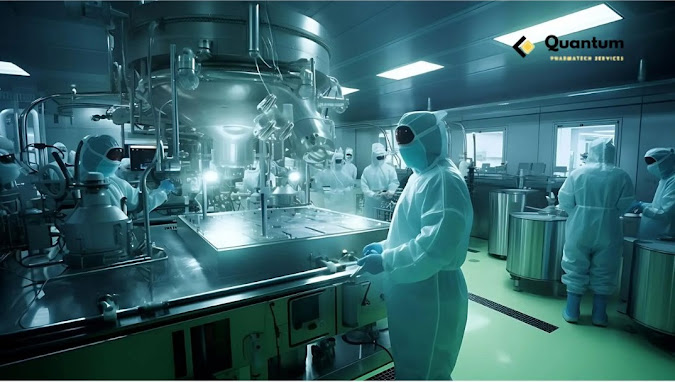In today’s fast-paced pharmaceutical industry, efficiency, compliance, and scalability are key factors in setting up or expanding production facilities. Companies looking for a competitive edge are increasingly turning to pharmaceutical turnkey solutions and turnkey pharmaceutical projects to meet growing demand while maintaining quality and regulatory standards.
What Are Pharmaceutical Turnkey Solutions?
Pharmaceutical turnkey solutions refer to comprehensive, ready-to-operate systems provided by specialized vendors. These solutions typically include everything from facility design, equipment procurement, installation, and validation to training and ongoing support. The goal is to deliver a fully functional production setup that allows the client to start operations immediately after handover.
By integrating all components under one umbrella, pharmaceutical turnkey solutions eliminate the need to coordinate multiple contractors. This approach reduces complexity, saves time, and minimizes risks associated with delays, miscommunication, or non-compliance.
The Role of Turnkey Pharmaceutical Projects
Turnkey pharmaceutical projects go a step further by offering a complete solution from concept to commercial production. These projects are designed to handle every phase of facility development—planning, designing, building, commissioning, and qualifying. The seamless integration of all stages ensures that pharmaceutical companies can focus on their core competencies, such as research and development or marketing, without being bogged down by operational intricacies.
These turnkey pharmaceutical projects are especially valuable for startups, CDMOs, or companies entering new markets. They provide a quick and efficient route to operational readiness, enabling faster time-to-market and more predictable outcomes.
Benefits of Pharmaceutical Turnkey Solutions
One of the main advantages of pharmaceutical turnkey solutions is consistency. Since one provider oversees all elements of the project, there is a greater level of integration, accountability, and quality assurance. Some of the key benefits include:
Faster Execution: With a single point of contact managing the entire project, timelines are shortened, and resources are better coordinated.
Cost Efficiency: Reduced overhead and bundled services typically result in cost savings over managing multiple suppliers.
Regulatory Compliance: Turnkey providers are well-versed in global pharmaceutical regulations and ensure that the facility and processes meet GMP, FDA, EMA, and other relevant standards.
Customization: Each project is tailored to the client’s product type, production volume, and regional regulations, providing a fit-for-purpose solution.
How Turnkey Pharmaceutical Projects Drive Growth
As pharmaceutical demand continues to grow, the scalability and adaptability of turnkey pharmaceutical projects become critical. These projects are built with future expansion in mind, using modular designs and automation systems that allow companies to scale up operations with minimal disruption.
In addition to scalability, these projects also enhance operational efficiency. Integrated automation and data management systems streamline workflows, reduce manual errors, and provide real-time insights into production performance. This not only improves product quality but also aids in strategic decision-making.
Moreover, turnkey pharmaceutical projects contribute to sustainability by incorporating energy-efficient systems, waste management strategies, and cleanroom technologies that comply with environmental regulations.
Technological Integration in Pharmaceutical Turnkey Solutions
Technology plays a central role in modern pharmaceutical turnkey solutions. Automation systems, IoT-enabled monitoring, and AI-based analytics are increasingly being integrated to enhance process control, traceability, and quality assurance.
For example, automated cleanrooms with environmental monitoring systems ensure optimal conditions for manufacturing sensitive pharmaceutical products. Similarly, advanced SCADA and MES platforms help track every stage of production, ensuring data integrity and compliance.
These tech-driven solutions not only streamline operations but also prepare pharmaceutical companies for future regulatory changes and industry shifts.
Why Choose Turnkey Over Traditional Approaches?
Traditional project execution often involves multiple vendors, extensive coordination, and a higher risk of delays. In contrast, turnkey pharmaceutical projects provide a streamlined path with clear timelines, cost predictability, and quality assurance.
By choosing pharmaceutical turnkey solutions, companies gain access to a team of experts who manage every detail, from regulatory planning to equipment qualification. This collaborative model reduces internal burdens and ensures that projects are delivered on time and within budget.
Conclusion
In an industry where quality, speed, and compliance are non-negotiable, pharmaceutical turnkey solutions and turnkey pharmaceutical projects offer a reliable and efficient path to success. Whether establishing a new manufacturing facility or expanding existing operations, these solutions ensure a smooth, cost-effective, and compliant process from start to finish. As the pharmaceutical landscape continues to evolve, embracing turnkey solutions will be key to staying competitive, meeting market demands, and maintaining high standards in product quality and safety.

Comments
Post a Comment